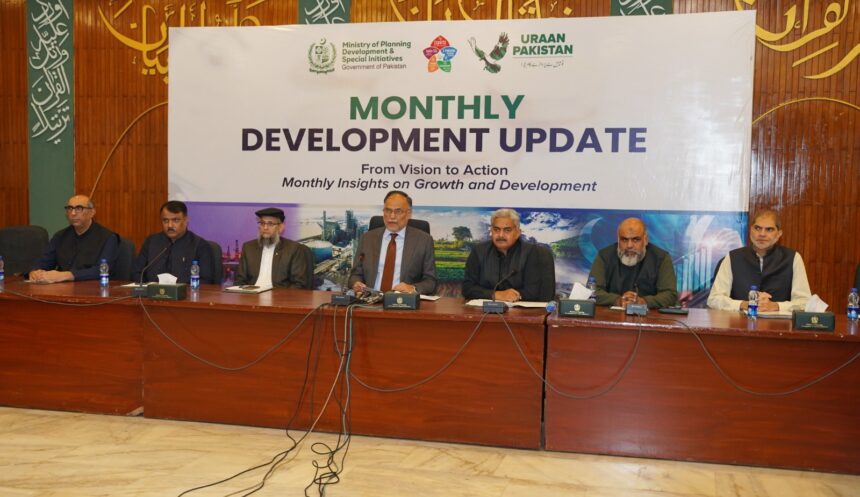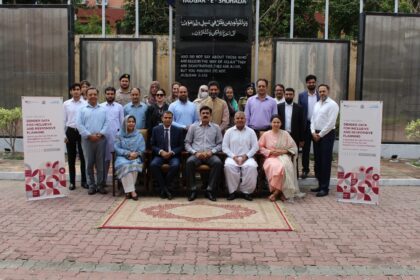The government’s timely emergency response and coordinated relief measures have helped sustain economic recovery despite the devastating 2025 floods, Federal Minister Professor Ahsan Iqbal said at the monthly development update launch in Islamabad. Under the leadership of NDMA, safe transfers of affected populations, integrated relief operations and advance emergency planning maintained continuity in critical services and preserved livelihoods.
Inflation showed signs of moderation in the early fiscal months with recorded rates of 4.1% in July and 3.0% in August. Flood-related pressures pushed inflation to 5.6% in September and 6.2% in October, but the July–October average remained at 4.7%, markedly lower than last year’s 8.7%, supporting the broader economic recovery narrative.
Large-scale industry has begun to rebound with rising demand for raw materials and fuel, and expanding industrial activity is helping to protect jobs. The Federal Board of Revenue collected Rs 3.8 trillion between July and October, an increase of 11.4% year-on-year that provided important fiscal space for relief and recovery efforts.
External flows strengthened confidence in stability as services exports climbed 14.7% to $2.2 billion, led by a 20.5% rise in IT exports to $1.1 billion. Remittances rose by 9.3% to $13.0 billion, reinforcing foreign exchange buffers and private sector resilience.
Development spending under PSDP was advanced with approvals totalling Rs 330.4 billion and releases of Rs 134.2 billion in the initial four months, ensuring continuity across projects within a one-trillion-rupee programme. The latest project approvals are expected to generate about 56,000 direct and 39,000 indirect jobs, while inspections and reviews have yielded estimated savings of roughly Rs 2.2 billion.
Looking ahead, Pakistan is pursuing regional cooperation to unlock new growth opportunities under CPEC Phase II, while investing in human capital to sustain long-term recovery. With nearly 60 percent of the population under 30, the government plans to offer 10,000 PhD scholarships in China focusing on artificial intelligence, engineering and emerging sciences to strengthen knowledge-based development.
These combined public health, fiscal and investment measures are intended to preserve gains and accelerate economic recovery, protect employment and set a foundation for resilient growth despite the 2025 floods.











